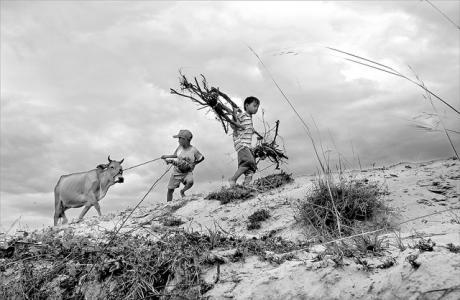Dear Committee Members:
As a group of practitioners and researchers closely involved with child rights and child protection programming, we have a particular interest in children’s work. We have recently learned that a General Comment on the Rights of Adolescents is being prepared and this may affect the rights of working children in relation to Article 32 of the Convention on the Rights of the Child. We see this as an opportunity to improve the protection of children and adolescents who do work. In particular we strongly urge the Committee to avoid binding its recommendation on Adolescents to the Minimum Age Standards set out in ILO Convention 138 and instead reference ILO Convention 182 and the importance of protecting working children from exploitation and harm. Reference to ILO 182 would need to respect the full range of children’s rights including their protective rights such as their right to education as well as their participative rights such as their right to information, their right to participate in decisions that affect them, and their right to organize, among others. Any application of ILO 182 in practice would need to take into consideration the local contexts where children work to ensure that children’s best interests are always served. Should there be interest on the part of the Committee to convene a technical discussion of the issues raised here in relation to children’s work we would be pleased to assist with such an endeavor.
Through our field programming and research with children, families and communities we have come to recognize that children can and do work to support themselves and their families. This work by children and adolescents takes place in a variety of cultural contexts and settings and in many instances allows children to learn technical, business and life skills that help them become productive adults within their societies. The work that children and adolescents perform however can have positive as well as negative effects. Children and adolescents may work in dignified situations that are neither harmful nor exploitative and support the realization of their rights, but there are other instances where children work in unsafe and unhealthy environments with little or no pay and find that they are unable to pursue their education and other rights.
We all agree that in all situations, including when children do work, they must be protected from harm and exploitation, but we have reservations about using ILO Convention 138 (Minimum Age Convention) to achieve that goal. Protection from any and all forms of exploitation is set out in Article 32 of the Convention on the Rights of the Child (para i) and protection from all forms of harm is specified in the ILO Convention 182. While care must be taken to ensure that children’s work is safe, appropriate, supportive of children’s education and dignified, policies that focus on banning children from work, particularly under age limitations, are generally not in their best interest and can have negative implications:
• When minimum age standards are incorporated into legislation, younger children who are no longer able to work legally can be pushed into illegal, invisible or more harmful forms of work, leaving them with no protective system. They can also be excluded from critical learning, development opportunities and community building activities.
• When the primary focus of legislation is on the minimum age for work, older children and adolescents who are legally able to work may be exposed to exploitative or harmful work as the legislation does not focus on preventing exploitation and harm. We strongly feel that minimum age standards are not the appropriate way to protect working children.
Any interventions carried out to protect and support working children must focus on preventing exploitation and harm while respecting the human rights of children, including their rights to participate in decisions that affect them.
A growing number of academics and practitioners in the field of children’s work are highly critical of the policy of a universal minimum age for employment, specifically as contained in the ILO Convention 138 (1973). Such criticism surprises many who assume that the policy protects children from abuse and fosters their education.
Here, briefly, is the argument against a universal minimum age. It is based on a large body of multi-disciplinary empirical research into how working affects children’s wellbeing and development.1 The evidence against a universal minimum-age policy is so much more persuasive than the evidence for it that many specialists now call for abandoning it altogether, instead favouring policies such as ILO Convention 182, that specifically target work shown to harm children.
Some of the challenges involved in the discussion of children’s work
People debating ‘children's work’ or ‘child labour’ frequently talk past each other because they have different phenomena in mind. This is a problem obstructing rational policy making:
• Some think of ‘work’ with stereotypical industrial work in mind – full time remunerated activities. Much of the older and institutional literature on child labour focuses on this kind of work.
• Others consider ‘work’ more broadly, to include part-time chores in family farms and businesses and in the home, such as fetching water or firewood and minding other children.
Following current social science trends, we define ‘children's work’ broadly to include all their activities that help to maintain themselves and/or others (usually but not necessarily relatives). By this definition, the large majority of children's work is in some family context or connection, part-time, and unpaid.
Minimum-age policies have over time moved from the narrower to the broader concept.
Attitudes towards children’s work are affected by values
People bring diverse values and ideologies to debates about children’s work. For example:
• Some consider work inherently inappropriate to childhood, which should be free of responsibility and dedicated to learning and leisure. Good parents do not involve young children in work.
• Others consider work good for children, providing in some cases access to income as well as training in discipline and responsibility. All children should from a young age help out as a matter of effective child rearing practices.
• For many, the appropriateness of work is situational. Work is acceptable for children when it is safe and does not unduly detract from school and leisure.
Such values relate to cultural, class, and other differences, as well as individual preference. The challenge is how to deal with such differences in policy. In child work issues, this has been especially difficult when values are rigidified into ideologies of one type or another.
Balance is needed and experience suggests that this is best achieved by informing values with empirical research that rigorously links policies to consequences in children’s well-being.
The policy of a general minimum age for employment
Advocates of universal (as opposed to targeted) minimum-age standards bring to their justification one or more of three key presuppositions about what is good for children, which they take to be fact:
Work is an impediment to children’s development, at least before adolescence. Or, children who work are more likely to be poor in adulthood – an “inter-generational transmission of poverty”.
Even if work is generally acceptable for most children, working puts them at risk of abuse. The best way to avoid such abuse is to prohibit children from working, and the benefits of avoiding abuse more than compensate for negative effects of not working.
Prohibiting school-aged children from work is useful for keeping them in school and promoting the primary importance of education.
Evaluated experience and social science research in a range of disciplines strongly suggests that none of these assumptions are valid as a universal generalization.2
Assumption 1 - “Work is an impediment to children’s development”
While there is no scientific evidence that work responsibilities are inherently bad for children (notwithstanding the issue of abuse), there is considerable evidence that when children undertake work appropriate to their age and in a supportive environment, this can have an important developmental role in children's present lives and in preparation for adulthood. Minimum age policy ignores this substantial body of evidence:
• Participation in household and economic work is often a powerful socializing force that brings children resilience and resources through full membership of their families and communities.
• Through work, children can learn technical and social skills that improve their self-confidence and well-being in the present and their life chances in the future.
• When children overcome challenges through their work, and particularly when they find that others can depend on them, the achievement can be an important source of self-esteem and resilience – particularly important for children in risk-laden situations.
• Work has economic benefits, important not only for the nutrition and school expenses of children from poor families, but also in the future. Once poverty and other influencing conditions are properly controlled for, recent research suggests early work of the right kind and amount may be associated with greater, not less, success in adulthood. Situational factors dominate.
Such benefits have been documented for children even below the minimum age set for ‘light work’. Where work often constitutes opportunity for children’s well-being and development, there is serious cost to stopping children from working. This cost must be assessed when considering any protection that might be offered by preventing children from working. Work cannot be accurately divided into mutually exclusive categories of harmful ‘labour’ and benign ‘work’.
Assumption 2 – “Banning work protects children from abuse and exploitation”
The weight of evidence does not suggest that simply engaging in work tends to put children at risk of abuse (although in certain situations it can), nor does it support the assertion that a universal policy banning children from work reduces workplace abuse of them (although carefully targeted prohibitions against certain kinds of harmful work can indeed help protect children). In addition, there are specific reasons why the ILO Minimum Age Convention (138) as a legal instrument is not necessary or adequate to protect children:
• Harmful, hazardous, and exploitative work is now forbidden under the UNCRC and by ILO Convention 182. Retaining a minimum age for employment adds to these only by prohibiting work that is not shown to be harmful or hazardous or exploitative. Why ban children from safe work?
• The Minimum Age Convention does not protect children from exploitation in ‘family and small-scale holdings producing for local consumption and not regularly employing hired workers’, which are exempt from the terms of the Convention (article 5.3). Research has shown that such holdings are sometimes more exploitative than the waged employment that is prohibited.
• The Minimum Age Convention offers no alternative protection to those who by force of circumstances need income for livelihood, and very often for schooling. Indeed, by making formal employment illegal to them, the Convention drives children’s work (including domestic work) underground and makes exploitative work situations more likely and considerably harder to control.
• The Minimum Age Convention treats effects rather than causes, ignoring gross inequality in which the exploitation of children cannot be separated from the exploitation of families and communities.
Therefore, the evidence suggests that a general minimum age for employment actually does not protect children from work abuse, but may deprive them of the benefits of work. In that way, it does more harm than good. Moreover, by focusing on the unwarranted criterion of age, such a policy diverts attention, energy, and resources from truly serious workplace abuse of children meriting urgent intervention.
Assumption 3 – “Work and school are incompatible”
The weight of evidence does not support the idea that banning children from work keeps them in school or otherwise promotes their education.
• Many young people successfully combine work and school, and where poverty does not compel long hours, time for work is more likely to detract from leisure than from schoolwork.
• School accessibility and quality are the strongest determinants of school attendance and achievement. Attention to these keeps kids in school more effectively than banning work.
• Raising household income (such as through conditional cash transfers) may in poverty settings both increase school attendance and reduce the amount of time children devote to work, without necessarily removing them from work altogether.
• For those who need income to cover school expenses, keeping children out of work can make schooling more difficult, and in some cases even impossible.
• Children who are either out of school or find attendance humiliating because of serious defects in the school system need alternative constructive activity. Work is often the best option.
A policy of banning children’s work has not been shown to be either necessary or effective for improving school attendance and achievement, and such a policy may inhibit children from acquiring the educational benefits of work.
Child labour and the employment market
A further assumption behind the drive to eliminate child work seeks to benefit children only indirectly through benefits primarily for adults. It holds that elimination of children’s participation in work protects adult employment and wages, raising family income to a level that children do not have to work. While there is some evidence that children in wage-labour markets can indeed compete with adults, there is also evidence that economic participation of children can maintain the viability of many kinds of household enterprises (such as farms and small businesses) and thereby create employment and income for adults.
The effect of children’s work on adult incomes varies with the work and the situation. It is also important to recognize that children without adequate adult support also have a right to income.
Rights and interests of children
Although the Minimum Age Convention was written before discourse on children’s rights became prominent, it is frequently assumed to be a child rights document.
This assumption is fallacious.
The universal minimum-age policy abridges for children certain human rights that are granted to everyone. Under international human rights law, rights extended to everyone – such as the right to work – may be abridged for children for their own protection. However, the validity of that exception depends on showing that it is necessary (i.e., not achievable by means that do not abridge their rights) and effective (protects children in practice). Neither of these conditions is met by the universal minimum-age policy: children can indeed be protected by measures against harmful work that do not prohibit them from all work; and no evidence that we could find suggests that a universal ban actually protects children, but we have found a number of cases in which it clearly worked to their detriment.
In regards to international policy on children’s work, it would be most logical and most beneficial for children to transfer efforts now devoted to enforcing a universal minimum age policy to the urgent implementation of policies to protect children from work and working conditions shown by empirical evidence to be harmful to them – as demanded by the UNCRC and ILO Convention 182.
Therefore, we recommend that any General Comment developed in relation to Article 32 of the Convention on the Rights of the Child make reference to ILO Convention 182 (with the qualifications mentioned earlier) and the importance of protecting working children from exploitation and harm, and not refer to the Minimum Age Standards set out in ILO Convention 138.
If you have any questions or require any further clarification, please contact Richard Carothers ([email protected]) who will coordinate a collective response with all signatories.
Thank you for your consideration of this critically important issue. Sincerely,
Bree Akesson
Priscilla Alderson
Reem Ali
Nicola Ansell
Dena Aufseeser
Doris Bonnet
Michael Bourdillon
Jo Boyden
James Boyon representing the African Movement of Working Children and Youth
Richard Carothers
Maria Delores Cervera
Kabita Chakraborty
Saifullah Channa
Maria Claudia Duque Paramo
John Cockburn
Tara Collins
Gina Crivello
Jennifer Driscoll
Justin Flynn
Jason Hart
Emrul Hasan representing Plan Canada
Neil Howard
Sara Imanian
Antonella Invernizzi
Melanie Jacquemin
Pamela Kea
Anne Trine Kjorholt
Cath Larkins
Deborah Levison
Stanford Mahati
Despina Maraki
Nicholas Meslaoui
Brian Milne
Virginia Morrow
Bill Myers
Sevasti-Melissa Nolas
Claire O'Kane
Samuel Okyere
Alula Pankhurst
Kirrily Pells
Carmen Ponce
Kirsten Pontalti
Gina Porter
Kavita Ratna representing the Concerned for Working Children
Keetie Roelen
Rachel Rosen
Bernard Schlemmer
Spyros Spyrou
Jessica Taft
Fabrizo Terenzio representing Enda
Nigel Thomas
Rachel Thomson
Dorte Thorsen
Kay Tisdall representing the Centre for Research on Families and Relationships, University of Edinburgh
Afua Twum-Danso Imoh
Voix des Enfants
Ben White
Nabeel Yaya
Sepideh Yousefzadeh
















